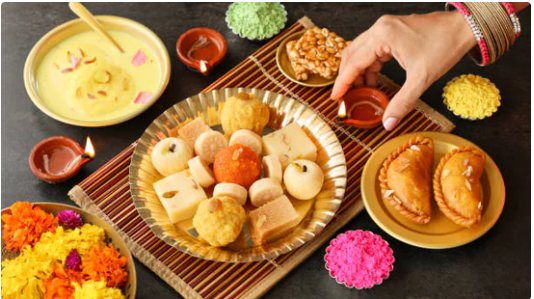Diwali
21 October 2022

Over the coming days, many of our families will be celebrating Diwali. Diwali is the five-day Festival of Lights, celebrated by millions of Hindus, Sikhs and Jains across the world. Diwali symbolises new beginnings, and the triumph of good over evil and light over darkness.
When is Diwali?
Diwali is a five-day event beginning on Saturday, 22 October, with Dhanteras, but the main day is on Monday, 24 October.
Where does the word Diwali come from?
Diwali comes from the Sanskrit word deepavali, meaning 'rows of lighted lamps'. Houses, shops and public places are decorated with small oil lamps called diyas. People also enjoy fireworks and sweets too, so it's really popular with children.
Traditions
- Many lights and oil lamps are lit on the streets and in houses
- People visit their relatives and have feasts
- Fireworks and festivities are an essential part of the occasion
- Lakshmi, the Hindu goddess of wealth, is worshipped as the bringer of blessings for the new year
Head of ICT, Mrs Qadri, asked some of our pupils how they celebrate Diwali.
Dev G, Year 8, said, "We light candles around our house and make some food like Sev which is like Bombay mix and we have some sweet foods. We also go to the temple to pray and light fireworks and even family members can come. You can't eat meat or chicken or pork or beef but you can have fish and veg so we make lots of vegetarian food."
"We also make rangoli designs like a lotus. Rangoli is basically coloured powder and sometimes there can be a competition."
Shivam Y, Year 7, said, "On Diwali, we celebrate how the Hindu god Ram comes home with Sita. I celebrate the first 3 days of Diwali. On Diwali we eat lots of sweets called mitai and celebrate by lighting our house top to bottom with lights."
Saachi R, Year 7, said, "Diwali honours the Hindu goddess of wealth, Lakshmi. The lights and lamps are said to help Lakshmi find her way into peoples’ homes, bringing prosperity in the year to come!
"Rangoli is a popular Diwali tradition –– beautiful patterns made using colourful powders and flowers. People draw rangoli on the floor by the entrance of their homes to welcome the gods and bring good luck!
"On Diwali we dress up in colourful traditional clothing, we light the inside and outside of homes with rows of lamps or other lights, and fireworks. We also go to worship at the temple and have a large traditional feast, and a gift exchange."
Tags: Learning for Life

